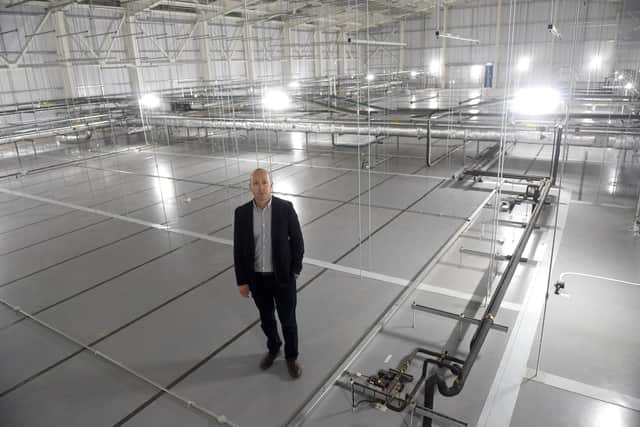Portsmouth's £25m 'white elephant' at International Port could be made redundant by new border control rules
and live on Freeview channel 276
The government has delayed the introduction of checks several times but on Wednesday (April 5) it published its draft Border Target Operating Model (TOM) which it said would ‘create the most effective border in the world’.
But port representatives have warned it is likely that these measures will mean investment made into border control posts, such as the £25m ‘white elephant’ in Portsmouth, will have been ‘wasted’.
Advertisement
Hide AdAdvertisement
Hide Ad

Under the new model, export certificates will be required of goods deemed as having a medium risk from November but these will now no longer be needed for low-risk products. And from February next year, documentary and physical checks at border control posts will also be introduced.
This includes the purpose-built facility at Portsmouth’s port, constructed in anticipation of the earlier introduction of checks that were later abandoned.
Port owner Portsmouth City Council has repeatedly criticised the government for its handling of the facility with the council only receiving £17m of its total cost while it has laid empty since being built. The council has considered alternative uses for the building but said this would be expensive.
These concerns have now been expanded by Richard Ballantyne, the chief executive of the British Ports Association, who said measures outlined in the new document made these facilities redundant.
Advertisement
Hide AdAdvertisement
Hide Ad‘Whilst many in the freight industry will welcome the long-awaited publication of the TOM, in many ways the document is a bitter pill to swallow as much of the hundreds of millions of pounds of both public and private investment, not to mention the huge collective effort there has been to develop the network of new border control posts, is likely to be wasted,’ he said.
‘Far fewer border interventions will be required, as a new environmental health control regime is implemented at our international gateways.
‘Whilst this is good in terms of the facilitation of cargo through our frontiers, our ports have had to build infrastructure that is likely not to be needed. This leaves our sector out of pocket and with costly large ‘white elephant’ structures on their estates. We are keen that the government picks up much of these costs.’
Charges levied for border checks would have helped fund these posts but he said the reduction in checks would make them ‘surplus to requirements’.
Advertisement
Hide AdAdvertisement
Hide AdBut the new document says it is ‘in the interests of port operators’ to facilitate border checks.
‘Ports will need to consider what changes may be required to their operating models in order to facilitate the introduction of controls on EU goods,’ it says. ‘This will primarily be changes to staffing and infrastructure requirements to reflect the check rates outlined.’
The government said the new model ‘secures Great Britain’s borders against threats while making it as easy as possible to do business,’ limiting demands on businesses by making increased use of technology.
Baroness Neville-Rolfe, minister of state at the cabinet office, said the publication of the document was ‘a huge step forward’ for border checks.
‘Our proposals strike a balance between giving consumers and businesses confidence while reducing the costs and friction for businesses,’ she said.